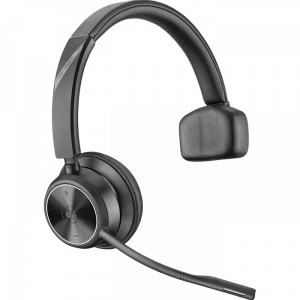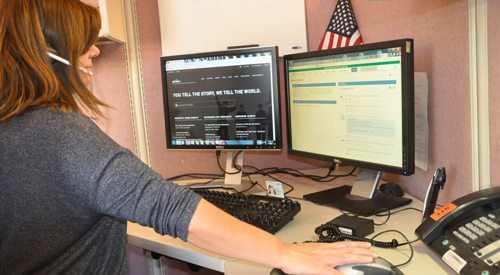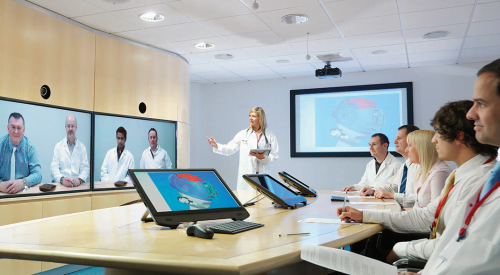 How Healthcare Providers are Using Headsets Direct for Optimal Headset Solutions.
How Healthcare Providers are Using Headsets Direct for Optimal Headset Solutions.
When it comes to healthcare headset solutions, many companies don’t have the time or resources to find the perfect headset solution for multiple applications and departments. It’s much easier to find one solution and try and make it work for everyone. Many purchasing departments also lump headsets with office products and buy the most basic off-the-shelf option available. When you inquire about other options, the representatives can only regurgitate the generic description within their system. Since they also handle tens of thousands of SKU’s, will only know surface level information about headsets.
Healthcare Providers working with Headsets Direct, quickly learn we take the time to understand your specific needs for each application and every department. This ensures you get the most out of your headset investment for the optimal headset solution.
 What Makes Headsets Complicated?
What Makes Headsets Complicated?
To find the best headset options for your users, we will need to discover the following:
- What is your application
- What is the background noise level
- How much time are users on calls
- What are you plugging headsets into (desk phone, PC, mobile devices?)
- Will you need noise canceling microphones
- Will you need active noise canceling in the speakers
- What wearing style will work best
- Will you leave the headset on all day
- Is a hands-free corded or wireless headset your best option
- Is answering away from your phone valuable to not miss calls
Understanding Your Choices Makes All The Difference.
When we start talking headsets with healthcare providers, we dive deep to understand the needs and personal preferences of each department down to each user. The three key elements to narrow the field of choices are:
- What are you connecting to: Deskphone, PC or mobile devices
- Will corded or wireless headsets provide the best solution
- How will users want the headset to fit: Over-the-head, over-the-ear or headsets with options
How Departments and Individual Uses Vary.
 Physician Headsets: Doctors will spend their day busy with patients. Between appointments, they find themselves on the phone with patient follow-up calls, researching and consulting cases with other physicians, and making inquiry calls regarding medications. Writing and typing efficiency can be greatly improved with a headset allowing hands-free communications and ergonomical benefits include reducing neck and shoulder strain by not cradling the handset against your shoulder.
Physician Headsets: Doctors will spend their day busy with patients. Between appointments, they find themselves on the phone with patient follow-up calls, researching and consulting cases with other physicians, and making inquiry calls regarding medications. Writing and typing efficiency can be greatly improved with a headset allowing hands-free communications and ergonomical benefits include reducing neck and shoulder strain by not cradling the handset against your shoulder.
Considerations:
- Over-the-Head: More secure. Dual ear option for better focus
- Over-the-Ear: Lighter in weight and low profile for face-to-face interactions
Solutions:
Pharmacists Headsets / Case Manager Headsets / Hospitalists Headsets: Allowing hospital professionals to roam from their desk phone is key to efficiency and maximum productivity. Whether on calls with Doctors or patients, moving through the hospital to fulfill/clarify orders or answering medical questions, being equipped with wireless headsets ensures they are easily accessible without delay or inconvenience.
Considerations:
- Devices: Connect to multiple devices (ie. desk phone, PC & mobile phone)
- Over-the-Head: More secure. Dual ear option for better focus
- Over-the-Ear: Lighter in weight and low profile for face-to-face interactions
Solutions:

Admins/Receptionist/Scheduling Headsets: Front office personnel often find themselves multitasking. While they assist patients, they are taking calls and are constantly thrown random tasks to take care of as quickly as possible. Wireless headsets offer a great benefit giving you the freedom to roam your office as you are on the run. With most phones you can add the ability to answer and end calls remotely to ensure you are receiving calls when away from your desk and not missing calls to voicemail. Consider the time wasted when a call goes to voice mail. First, you need to navigate your voicemail system. Next, listen to the message and write down names and numbers. Finally, you return the call but how often do you miss them and you begin the game of phone tag?
Considerations:
- Devices: Connect to multiple devices (ie. deskphone, PC & mobile phone)
- Over-the-Head: More secure. Dual ear option for better focus
- Over-the-Ear: Lighter in weight and low profile for face-to-face interactions
Solutions:

Billing Headsets: Users that spend most of the day talking to insurance companies and patients need to hear clearly and be comfortable. Premium series headsets will offer the best possible sound quality allowing users to hear information clearly the first time. This will reduce errors in the exchange of information, and having to constantly asking for information to be repeated. Covering both ears will also improve accuracy since users are less distracted with co-workers and other distractions within the office. When considering comfort for all-day wearing, leatherette cushions will provide improved comfort over standard foam cushions and are easy to clean with sanitary wipes.
Considerations:
- Single Ear: Hear what’s going on around you
- Dual Ear: Block out noise and distractions to improve focus
Solutions:

Telemedicine Headsets/Speakerphones: With the advancement of telemedicine, clinicians are easily able to consult with remote colleagues or patients using the video and audio capabilities of laptops, tables or mobile phones. You can’t control what your patient uses for technology, but you can outfit your teams with the latest technology by providing noise-canceling headsets. This will free your hands while taking notes and ensuring the best possible audio clarity.
For consulting specialists, a business grade noise canceling headset, or professionally sounding speakerphone for multiple parties enhances the communication of the consult. This allows the attention to be on the patient’s solution and not distracted with poor audio.
Considerations:
- Headsets for private conversations
- Speakerphones for conference calls and huddle rooms
Solutions:

Nurses Station Headsets: Always on the go but in constant need for communicating information between physicians, hospitalists, pharmacists, patients and family. The ability to be mobile is key for optimal mobility and efficiency.
Light-weight and low profile headsets make managing information much easier and more efficient. With wireless devices, you can quickly care for patients while never missing calls with critical information and updates. Wireless headsets designed for over the ear/behind the ear stay secure and allow for crystal clear calls and with remote answer capabilities, you never miss calls to voice mail.
Considerations:
- Smaller, lighter weight headsets are low profile and hardly noticed
- Slightly larger headsets will extend battery and distance
Solutions:

Dispatch Headsets: Whether it’s coordinating ambulances or general transportation of patients between hospitals, dispatch agents play a key roll in the overall care of patients behind the scenes. Therefore, audio quality must be perfect call after call with accurate information being transmitted and received without error or time wasted as information is repeated.
Dual ear headsets work well to keep users focus on their calls and reduce background distractions. Hence, with all users covering both ears, you will also greatly reduce overall noise as users don’t feel the need to talk over each other. By sliding one speaker behind your ear, you still have the ability to easily communicate between co-workers as needed.
Considerations:
- Standard Dual Ear: Reduce noise and distractions to improve focus
- Circumnaural Dual Ear: Complete isolation for extremely loud environments
Solutions:

Training Headsets: Healthcare professionals are in constant training mode as they keep up with the latest information and medical techniques in their field. Webinars, therefore, are an easy way to gain training without the expense and travel time to attend in person. This also allows you to narrow your focus on what you need to learn without taking time on unnecessary lectures.
Consequently, using high quality headsets and your PC will allow you to receive the training you need to give your patients the best care possible. Understanding your presenters allows you to learn the material without the need to re-watch webinars or lose focus if you’re struggling to hear clearly.
Considerations:
- Single Ear: Hear what’s going on around you
- Dual Ear: Block out noise and distractions to improve focus
Solutions:
Learn more about Healthcare Headsets at Plantronics Healthcare Headsets / Speaker Phones
